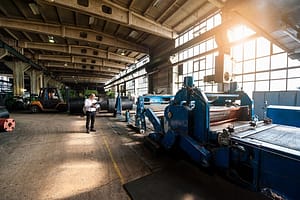Running a successful business involves much more than just offering quality products or services. It also means ensuring the safety and well-being of your customers, clients, and visitors when they step foot on your premises. This responsibility comes under the purview of premises liability law, a crucial aspect that every business owner should be well-versed in. In this comprehensive guide, we’ll break down the key elements of premises liability law, provide actionable insights, and offer strategies to minimize potential risks.
Understanding premises liability law
At its core, according to hodgelawfirm.com, premises liability law is the legal concept that holds property owners accountable for any injuries or damages that occur on their property due to negligence. While the specifics of premises liability law can vary from jurisdiction to jurisdiction, the overarching principle remains consistent: business owners have a duty to ensure their premises are safe for visitors.
Types of visitors and their legal status
Within premises liability law, visitors are categorized based on their legal status, which determines the level of care the property owner owes them. There are three main categories: invitees, licensees, and trespassers.
Invitees are individuals who are on the property for the mutual benefit of both parties, such as customers in a store. Business owners owe invitees the highest duty of care, requiring them to regularly inspect the premises, address potential hazards, and provide adequate warnings.
Licensees are social guests, like friends or acquaintances. While the duty of care is slightly lower compared to invitees, business owners are still required to fix known hazards and warn licensees about any dangers that might not be immediately obvious.
Trespassers, on the other hand, are individuals who enter the property without permission. While the duty of care towards trespassers is limited, business owners are not allowed to intentionally harm them and must avoid setting up traps or dangerous conditions.
Common causes of premises liability claims
Premises liability claims can arise from a wide range of scenarios, each emphasizing the importance of maintaining a safe environment. Slip and fall accidents are one of the most common types of claims, often resulting from wet floors, uneven surfaces, or inadequate lighting. Other frequent causes include inadequate security leading to assaults, falling objects, and structural defects.
Mitigating risks and ensuring safety
As a business owner, it’s in your best interest to prioritize safety to avoid potential legal complications. Regular maintenance, thorough inspections, and prompt repairs are essential steps to prevent accidents. Implement clear signage in areas where hazards may be present, and provide proper training to your staff on safety protocols. By staying proactive, you not only protect visitors but also maintain your business’s reputation.
Premises liability insurance
No matter how diligent you are in maintaining a safe environment, accidents can still happen. This is where premises liability insurance comes into play. This type of insurance helps protect your business financially in case of claims and lawsuits related to injuries or property damage that occurred on your premises. It can cover legal fees, medical expenses, settlements, and judgments, providing you with peace of mind and a safety net.
Responding to accidents and claims
Even with all precautions in place, accidents can occur. In the event of an accident on your premises, your immediate response is crucial says https://dwaccidentlawyer.com/. Attend to the injured party’s needs by providing appropriate medical assistance. Document the incident thoroughly, including photographs of the scene, any hazards, and the injuries sustained. Collect contact information from witnesses and involved parties, as their accounts could be crucial in any legal proceedings.
When a claim is filed, take it seriously. Notify your insurance company promptly and cooperate fully with their investigation. Having a well-documented record of your safety measures and actions taken after the accident will prove invaluable in defending your case.
Conclusion
In the complex world of business ownership, understanding premises liability law is not just a legal obligation, but a moral one too. By comprehending the various legal statuses of visitors, recognizing potential hazards, and taking proactive measures, you can significantly reduce the likelihood of accidents on your premises. Moreover, investing in premises liability insurance and being prepared for any eventuality demonstrates your commitment to the well-being of your customers and the success of your business. Remember, a safe environment isn’t just a legal requirement – it’s the foundation of trust and a thriving enterprise.






Leave a Comment